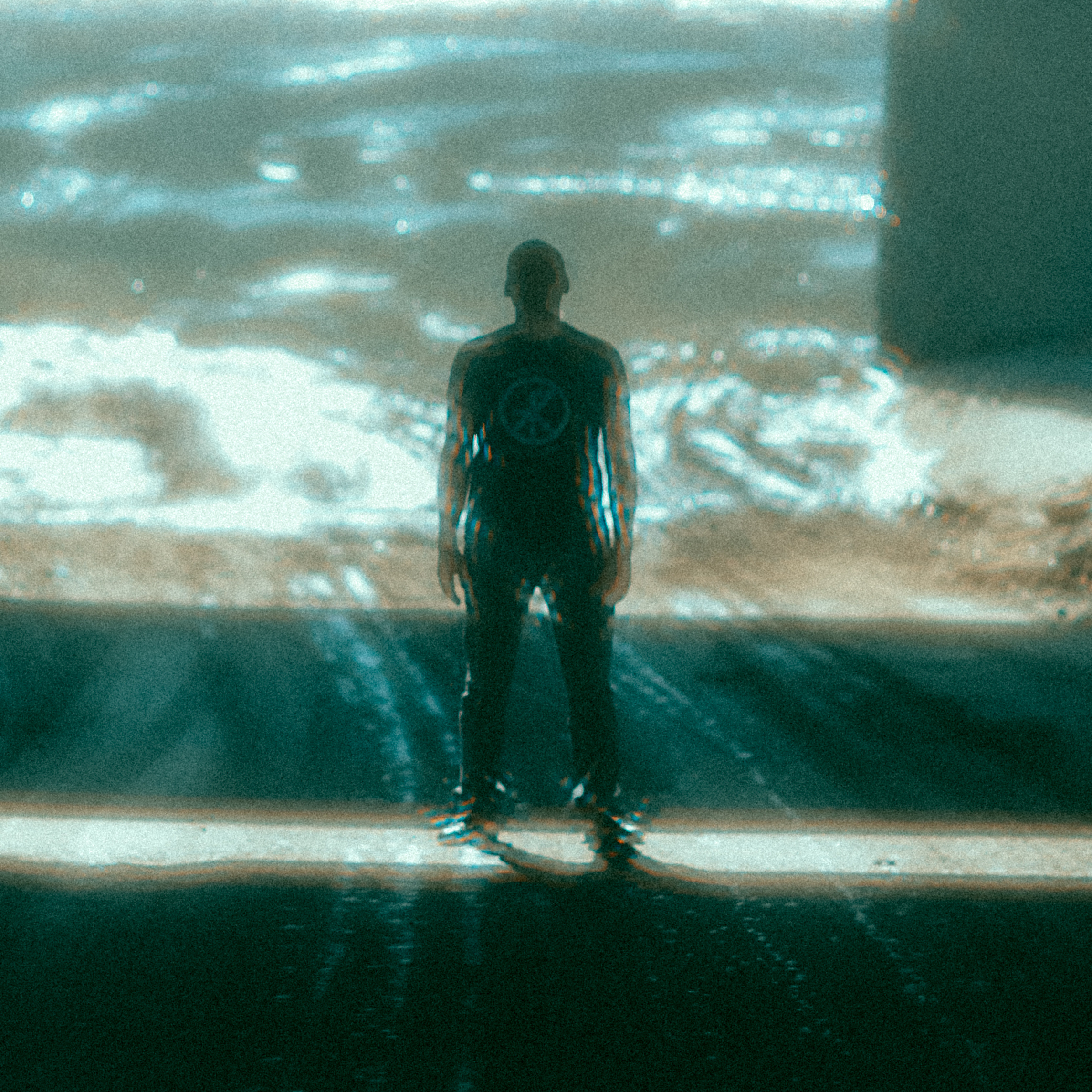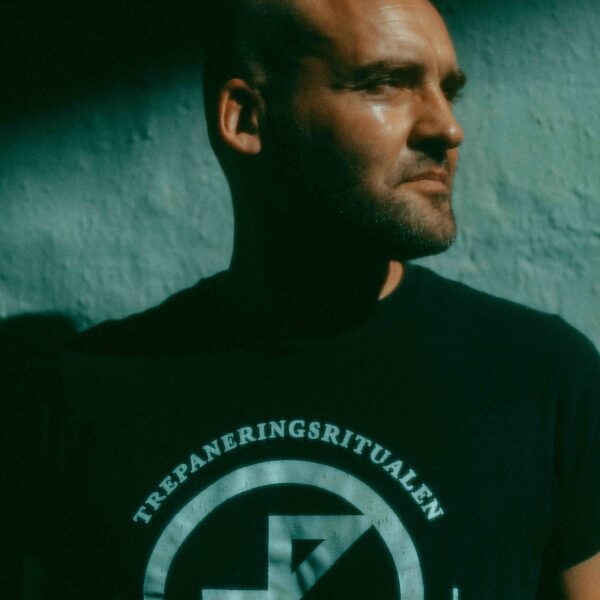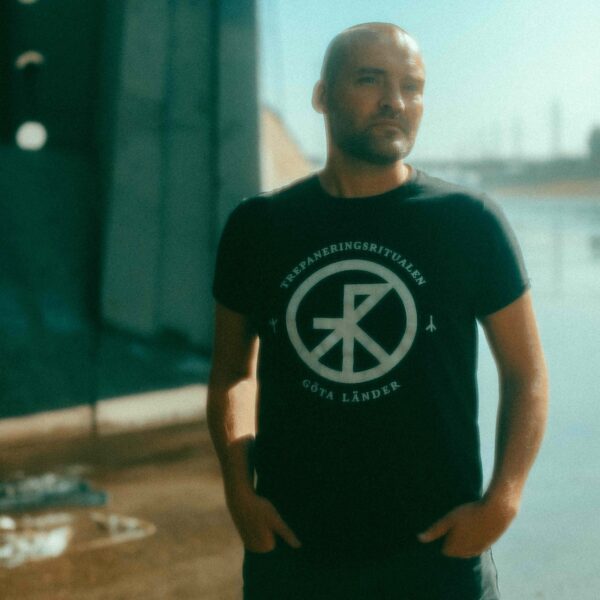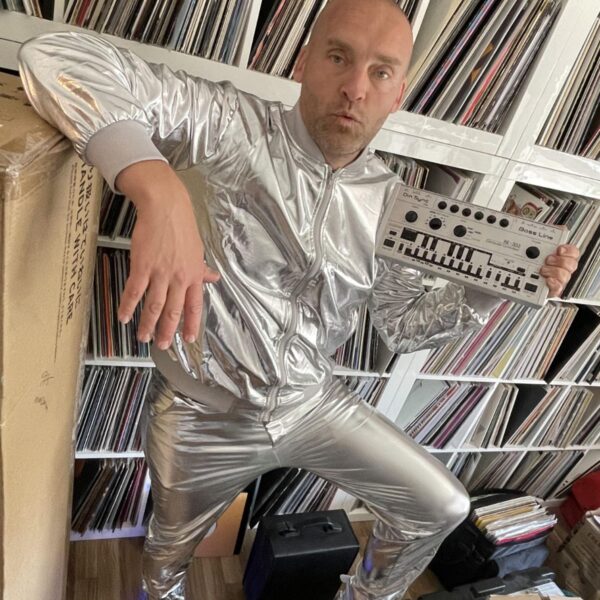We discuss music technology, drugs in the 90’s and club culture with electronic music savant, Daniel Troberg ahead of his appearance at Jaeger
Electronic music instrument designer, producer, DJ, radio host, label owner, vinyl enthusiast, festival organiser, and club-music savant. Daniel Troberg wears many hats, and everything he does either has a root in, or branches off, from electronic music. Since the age of 17 he’s been involved in the clubbing scene, starting as a DJ on the Åland Islands at the peak of club music’s second wave; when things were still experimental, but starting to get a foothold in the mass consciousness. Hosting parties like Out of the Blue, Minimalize, and Science Fiction with his friends while “not even being old enough to drive,” Daniel played a vital role in Åland’s nightlife in the 1990’s.
A computer savant for as long as the personal computer has been around, Daniel was more than just a DJ and music enthusiast. He started hacking MSX computers to create rudimentary electronic music as a young child and by the time he came of age, he was programming machines to do his musical bidding, releasing records under aliases like Elektromekanik, The Player, and Erase.
By the late nineties he started working for electronic instrument company Elektron, playing a hand in the design of their first trailblazing machines, the Machinedrum and the Monomachine. Working at Elektron, he designed what was to become one of the world’s most iconic samplers and drum machines, the Octatrack.
Today there isn’t a Techno setup around without an Elektron machine and most of the live iterations still use the Octatrack at the centre of their setup. Next to Roland’s original XoX series, Elektron’s machines are iconic with Daniel’s influence on electronic music.
Based in Los Angeles today but “working all over the place” Daniel is currently involved in another synth company, ASM, as well as representing the “holy grail” of mixers: Zaehl, a company made famous by the association to legendary early Kraftwerk producer, Conny Plank. He DJs regularly, ever faithful to the vinyl format, playing all over the world and hosting his regular show ‘Transition’ on radio station Dublab.
He continues to record music for labels like Detroit Underground and Acid Chicken while also running his own label, Sonidosys. During a visit to Berlin’s annual synth messe Superbooth, he’s also making a few stops in some DJ booths around Europe and Scandinavia, including Jaeger’s this weekend. We caught up with him via phone to find out more about his musical history, his work with Elektron and his thoughts on electronic music and the culture.
How was Berlin?
It was very nice. It felt like the start of the party season.
And you were there specifically for Superbooth?
Yes, and I also played at Klunkerkranich. It was the 10-year anniversary for Bitwig (DAW). Stimming and Rust played too, both fantastic sets, and the place was packed.
Was there anything at Superbooth that excited you for the future of music technology?
I rarely get excited these days. I think everything is just a rehash, but thats ok. I think the next thing is the implementation of AI in both hardware and software, but what I am excited about is also the opposite. When someone make products that are at the extreme opposite end of AI, where you step back in time and bring forth old and sometimes absurd technology instead. Or combine the two. It’s those extremes I’m personally interested in at the moment.
When it comes to your own music today, where do you usually start in the creative process? I find in your music there’s always this experimental thread that appears to be exploring the possibilities of the machine.
My main workhorse is the computer with a DAW like Ableton or ProTools. Bitwig, Renoise, and Metasynth gets used too. I still have a bunch of hardware and I usually like to sit on the floor and have my stuff around me and record half an hour or so of material. Then maybe patch things in a different way and then record again, and so on. It’s just interesting to have different approaches, because I can get different results. I like to not remember how I did things, because then it gets boring for me. Then again, at times I take my two Octatracks to rework stuff I’ve recorded previously.
I’m glad to hear that you still use the Octatrack… Can you separate that machine builder/creator part of your personality with the artistic side?
Yes but it has taken time. My analytical mind like to think of instruments as to what they can offer to a user. With the Octatrack, the idea was to have it be able to play back pretty much any musical style, tempo, time division and so forth. It wasn’t meant to be a Techno machine. That was the last thing we all wanted back then, because it’s so obvious. But it is also great at it. My artistic side like to have inspiring instruments, tools, and toys to play around with. Like the Octatrack, or the Hydrasynth Explorer.
The Octatrack is very much a performance tool and when we’re talking about performance and recording, are those two separate things for you?
These days with the amount of real-time and on-the-fly editing, and the fact that one can jump between recording and play modes fluently, I’m basically playing live as I’m recording. It’s so interactive these days. I also often apply this to mixing, and effects. Sort of what they did in Jamaica with the early dub techniques. So, I don’t think there is a large gap between performance and recording to be honest.
And is that where your music comes from, in that live performance moment?
I’m not really a live performer. It all depends on my mood. Sometimes it’s nice to just print down a melody into a sequencer. When I work in Ableton, Bitwig, Renoise, or with hardware, it usually gets loopy. But when I work in ProTools or Metasynth, it’s more linear. I do drone and ambient stuff too, and that has a much longer cycle. I don’t treat it the same way as a rhythmic loop for obvious reasons, so usually thats where ProTools comes in.
You mentioned the drone and ambient projects, and you have so many other aliases with a prolific output amongst them, but where did it all start?
I got my first computer in 1983. Shortly after that I wrote my first lines of basic code that made simple melodies. At the same time, we also had a reel to reel at home, so I was recording things on that. And I got a little toy keyboard. In terms of making actual tracks, the computer was indeed involved in the process but that was a bit later on. Then came hardware synths, samplers, and so on.
A reel to reel machine seems pretty unusual to just have around in the eighties.
It wasn’t super unusual, because that was one of the few mediums you could record onto with good quality. Thinking about it now though, I don’t think anybody I knew had a reel to reel at home, but my dad did have one. He liked to listen to music and he had excellent taste. It wasn’t a high-end studio reel-to-reel, it was a consumer reel-to-reel.
When it comes to computers and coding, why did you think to use it as a tool for music, instead of creating video games?
Music has always been a means of escape for me. I have always listened to a lot of music, and music from computer games was just one more channel for me to tune in to. A computer game that had the slightest little sample in them – because for instance a Commodore 64 can play back samples in a very rudimentary way – would freak me out, because it just sounded so otherworldly. By the early to mid eighties, as breakdancing became popular, hearing the robotic music that the breakdancers was moving to, made me somehow realize that computers were partly involved, or more correctly, that electronics were involved. It was sort of a revelation to me. It fueled my obsession with music.
Did that lead down to a road with club music?
That came later of course, but yes, it was inevitable. With that came an interest in DJing. My good friend Johan, who started DJing at the school discos, lent me some turntables and a mixer. When I started 7th grade, I connected with him on a musical level, as he had records and turntables.
When did you start putting on events?
It started in 1994.
So right at the cusp of a House music’s next evolution.
Yes and around that time there were a lot of interesting styles and music that was coming up too. The home recording revolution helped to push that. Cheap boxes that flopped in the 80s was now used and abused to make alternative music. It also started to get quite aggressive. It was a hot pot of everything and I really liked the experimental Acid tinged techno and house that came around ‘93/94.
Who were some of those influences?
Too many to mention, but I used to buy records from a guy down in Gothenburg and he was tied in with suppliers in Detroit, like Underground Resistance. He was also tied in with the Delirium record shop in Cologne, which would later become Kompakt records. Stuff that was coming from The Netherland and the UK was fantastic too.
What are you leaning towards in terms of music in your DJ sets today?
I don’t really like new music that much. I think most new music sucks to be honest. There are very few things that excites me, but what I like is finding music that is mind-blowing, and then exposing that music to people who hopefully haven’t heard it before. If you are a DJ, or Selector rather, your mission is really to pick songs and tracks and present them in an interesting way; be a curator of music. I like to concentrate on the vinyl format, because thats what I grew up with.
You are still traveling around with a bunch of records right now?
Yes, because I don’t want to compete with the younger generation of DJs. I really just want to be an old grumpy guy that knows vinyl. That’s good enough for me. On the other hand, it is having a bit of resurrection too. So in a way, it might be hipper than ever, not sure.
Are you still finding new music on vinyl, or is it about collecting those old records?
I find really good new stuff from time to time. What’s funny is that there are so many reissues right now. I go to places like Hardwax in Berlin and find amazing music, there’s no question about that. I have some particular styles that I prefer; I like a certain type of Techno, House, Italo Disco, Electro, Ambient, and some quirky 80’s stuff. I don’t play too dark stuff. It’s got to have funk and it’s got to lift and challenge the listener in some way; and I usually don’t like music that you want to hang yourself to. (laughs) There’s enough bad shit going on in the world anyway.
There’s something in that approach to the sound of club music that I find is really indicative of Swedish Techno, Electro and House from your generation and era. Was there something in the water there during your time coming to the fore that you believed laid the foundation for all these amazing producers and music to exist?
New styles of music is usually contributed by two things: drugs and technology. Music has always been informed by the drug of choice and at that time it was ecstasy. The nineties was fueled by it and it was reflected in the music. Then all the boxes in the 80s that sort of flopped sales wise would started to get heavily used in the 90s because they were cheap. The MI business also got wind of this. In 1995, the 303 (Roland bass line synth) and the 909 (Roland rhythm composer drum machine) were starting to get more expensive and so companies like Roland released products that latched on to this new found popularity, like the MC303 and so on. As for Sweden in particular, I believe some additional factors were at play: a well funded school system that had music education on the curriculum, and an economic upturn in the 80s that enabled a lot of kids to have access to home computers.
You touched on legacy there with the Roland machines, and thinking about Elektron today, I don’t believe there is a live- or studio setup that doesn’t have an Elektron machine in the mix. When you guys started doing the Machinedrum and such, did you ever think it was going to have this legacy?
Yes. The Machinedrum and the Monomachine were quite niched when they were released. The Machinedrum was released during the height of the laptop frenzy. Very few people bought a drummachine that costed about as much as a laptop itself, the timing was actually horrible. But that made it special too. After a while, laptops weren’t as cool anymore. In comes Octatrack.
I remember my friend getting a Machinedrum back in the day for like $1000 (still cheaper than used 909 even back then) and it just seemed like a revelation. A year after getting it he still barely touched the surface of the possibilities of the machine.
Machinedrum and Monomachine sales weren’t great but they slowly became cult instruments, because they were very special and some big producers and acts started using them, like Autechre and Sophie. The units were kind of expensive, and the word was that they were hard to use. My opinion is that they are the easiest things to use. For example, Sophie was an excellent producer and sound designer and she used the Monomachine in a way that made it sound like you’re rubbing your hands against a balloon or something. Insane sounds! She was the last true renaissance producer to use the Monomachine, and it’s thanks to her they are $3000 now. (laughs)
Proving the fact that it and machines like Octatrack are some of today’s legacy machines and you helped create that.
Yeah, with the Octatrack there’s really nothing like it, except for a somewhat intricate computer setup, and it’s still going to be around for a while I think.
Back to present however, is there anything on the horizon for you that you are excited about?
I do have a festival on the Åland islands. It’s called Kokong. It’s the third year we’re doing it and it will be held on the 2nd and 3rd of August. I’m from there and we’re a small team that is trying to create well curated and specialized electronic music festival that focuses on ambient and experimental electronic music, and then later in the evening it turns into House, Techno and Acid. I’m also about to re-release my old Electromechanix catalogue, it’s about 50 tracks in total. I did 9 vinyl releases from 2001 to 2003 and then I have some unreleased tracks to go along with that.
Any musical highlights for you at the festival?
We only book fantastic acts of course, but TM404, Tinman and the Åland duo Havsmörker gets me extra excited. Havsmörker are awesome and they are also my colleagues in this festival. I did a remix for them that DVS1 is currently playing quite a lot. So if someone wants to come and explorer Åland, have some local pancakes, and listen to some electronic music, August 2nd and 3rd will definitely be the time. The webpage is www.kokong.ax.




